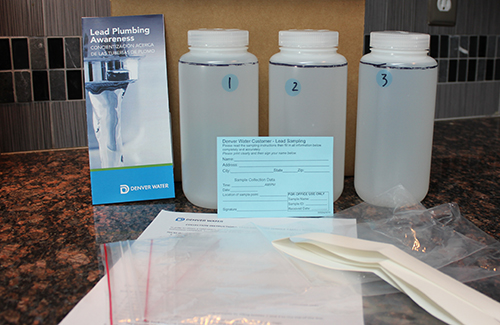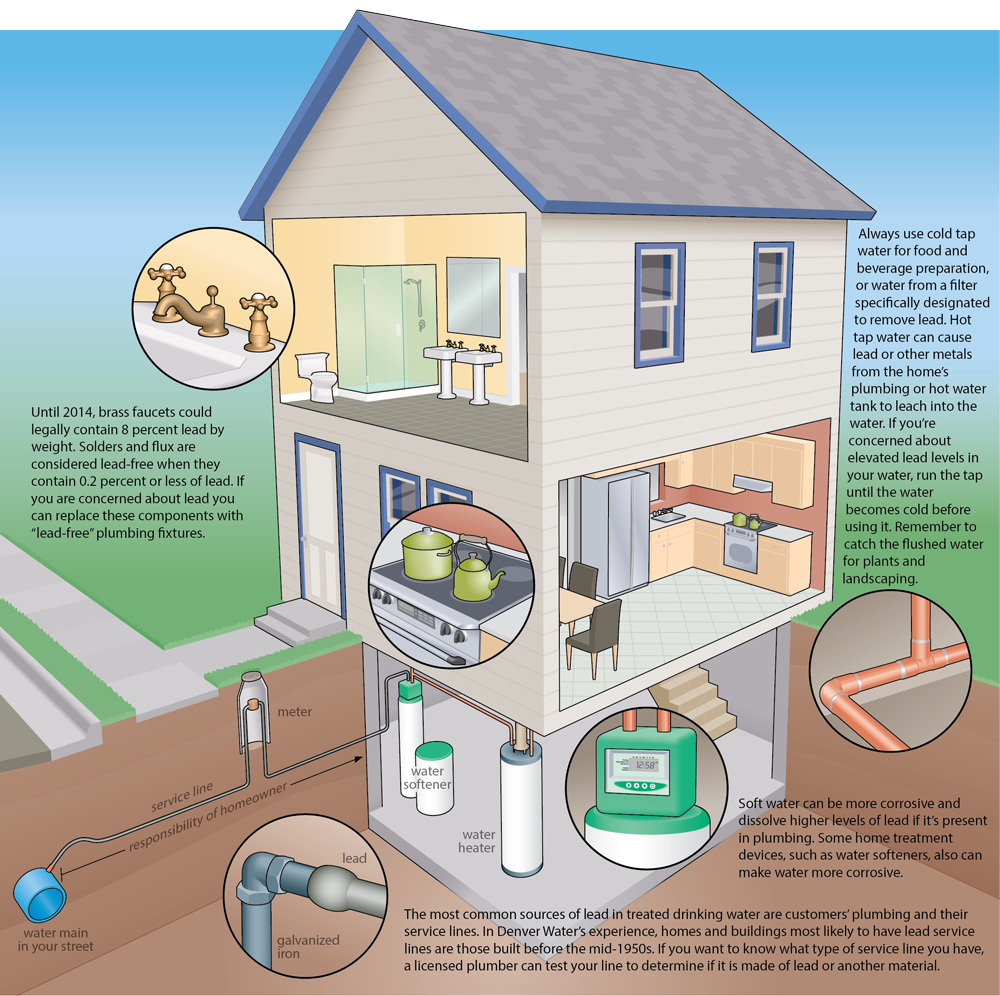
Anytime is a good time to test for lead in your water
We hope that National Lead Poisoning Prevention Week (Oct. 23-29, 2016) prompted you to check your home for common sources of lead, which can range from paint to pottery.
But it’s always a good time to test for lead, and we can help, when it comes to your water.
Denver’s water supply is free of lead. But your service line or household plumbing may be made of lead, and that can leach into your water.
If you’re concerned about the water in your home, the first step is to get a water quality test. Denver Water customers can request a free test, and the state keeps a list of other options.
Our sampling kit comes with three bottles, which must be filled with water from the same faucet. (See this video for all of the single-family kit steps.) This helps us analyze water from throughout a home’s entire plumbing system, to help determine the source of any lead.
Whether or not you use our test, it’s important to understand where water meets lead: within a home’s plumbing, after it leaves Denver Water’s system.
Sources of lead in your home include:
-
There are several potential sources of lead in a home's plumbing. Faucets and faucet parts made of brass, especially if they were installed before 2014.
- Pipes made of lead or galvanized iron.
- Copper pipes connected with solder made of lead, which was common before 1987.
- A lead or galvanized service line, which connects your home to the water main in the street. Homes built before the mid-1950s are the most likely to have lead service lines.
To better understand your home’s plumbing, you might want to hire a plumber, said Steve Price, coordinator for Denver Water’s lead reduction program.
“You can’t necessarily see everything your faucet is made of. The same goes for service lines, because they run underground,” Price said. Experienced, licensed plumbers can test service lines and — if needed — replace lines, pipes or fixtures.
Get more tips for reducing your risk of exposure to lead through drinking water. Helpful resources on preventing lead poisoning from soil, paint and other sources include the EPA and Centers for Disease Control and Prevention.


